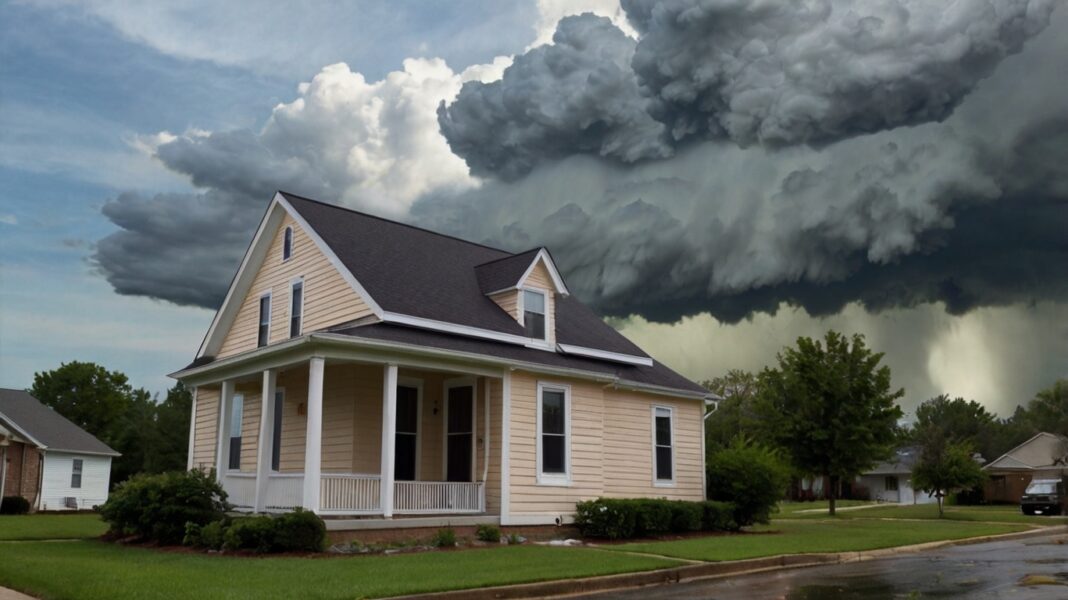Mastering the Claims Process:Disasters not only cause physical damage but also emotional and financial stress, particularly when dealing with insurance claims related to Acts of God like floods or earthquakes. Understanding these events and their impact on your insurance policy is vital for effective claim management. This guide will cover what qualifies as an Act of God, how they affect claims and practical steps for preparation and response.
What are Acts of God?
Acts of God refer to natural disasters that occur without human intervention. Understanding how these events are defined is essential for homeowners, as they can significantly impact insurance policies.
Mastering the Claims Process
Defining Acts of God
While the term “Act of God” might conjure images of biblical plagues or divine intercession, in the realm of insurance, it refers to natural events that are unpredictable and unavoidable. These include:
- Severe weather events (like hurricanes and tornadoes)
- Geological events (such as earthquakes and landslides)
- Flooding caused by heavy rainfall or melting snow
- Other natural occurrences (like wildfires or volcanic eruptions)
The Significance of Acts of God in Insurance
Insurance policies often distinguish between types of damage based on their causes. Acts of God are significant because they can determine whether a claim will be covered or not. Homeowners must understand how these definitions are applied within their specific policy documents.
Examples of Common Acts of God
To provide homeowners with practical context, consider these examples:
- A hurricane that causes extensive water damage to properties along the coast.
- An earthquake that cracks the foundation of a home.
- Heavy rains that lead to flooding, even if the area is not typically flood-prone.
Understanding these examples helps homeowners recognize potential risks and coverage options.
Impact on Insurance Claims
When an Act of God occurs, policyholders may think their insurance will cover the resulting damage. However, the reality is often more complex.
How Acts of God Affect Claims
The first step in any claim process is to establish the cause of damage. If an event is categorized as an Act of God, it may or may not be covered, depending on the specifics of the homeowner’s policy.
For instance, while most standard policies cover wind damage from hurricanes, they may not cover flooding unless additional flood insurance is purchased.
Coverage, Exclusions, and Premiums
Insurers typically assess risk based on geographical location, which affects premium costs. For example, homes in hurricane-prone areas may incur higher premiums due to the increased likelihood of related claims.
Understanding the interplay of risk, coverage, and premium pricing helps homeowners make informed decisions about their insurance policies.
The Role of Exclusions and Limitations
While many policies cover damage from Acts of God, there are exclusions that homeowners should be aware of. These may include limitations on coverage amounts or requirements for additional riders.
For example, a homeowner’s policy may cover earthquake damage up to a certain limit, but anything beyond that would require separate earthquake insurance, which homeowners should review and consider based on their specific risk factors.
Navigating Claims
When damage occurs due to an Act of God, understanding how to effectively file a claim can make the process smoother for policyholders.
Steps to Take When Filing a Claim
The first step after any disaster is to assess the damage. Homeowners should document everything with photos or videos before making any repairs. This documentation will be critical in substantiating the claim.
Once the damage is documented, it’s time to contact the insurance company. Most insurers have 24-hour hotlines to report claims. Homeowners should be prepared to provide details about the event and the resulting damage.
Mastering the Claims Process
Common Challenges and How to Overcome Them
Navigating claims related to Acts of God can present unique challenges. For example, after a significant storm, the number of claims may overwhelm insurers, leading to delays in processing claims.
To minimize frustration, homeowners should keep track of all communication with their insurer, including dates, times, and the names of representatives spoken to. This record can be useful if there are disputes or delays.
Additionally, many homeowners turn to public adjusters—professionals who help policyholders negotiate with their insurance company—to assist in the claims process, especially if they encounter difficulties.
Resources for Support
Homeowners can also seek support from organizations like the National Association of Insurance Commissioners (NAIC) and the Insurance Information Institute (III). These organizations offer resources and guidance on navigating claims related to Acts of God.
Preparing for the Future
While homeowners cannot prevent Acts of God from occurring, they can take proactive measures to prepare for and mitigate potential damages.
Tips for Homeowners to Prepare
- Regular Maintenance – Conduct regular maintenance on your property (e.g., clearing gutters, and inspecting roofs).
- Emergency Plans – Develop and practice emergency plans with your family (e.g., evacuation routes).
- Stay Informed – Stay informed about local risks and events through government channels and weather alerts.
The Importance of Regular Policy Reviews and Updates
Homeowners should regularly review their insurance policies to ensure they adequately cover potential risks. Engaging with an insurance agent can help identify gaps in coverage and suggest necessary updates.
Considering Additional Coverage Options
For those living in high-risk areas (e.g., flood-prone regions), considering additional coverage options is crucial, especially after a denied storm damage claim in Ft. Lauderdale. Homeowners should proactively inquire about endorsements or separate policies that provide enhanced protection against specific risks. Regularly updating one’s insurance policy not only ensures adequate coverage but can also potentially lower premiums as risks are mitigated over time.”Mastering the Claims Process”
Conclusion
Now that you have a better understanding of Acts of God and how they can impact insurance claims, it’s crucial to review your homeowner’s policy regularly. Understanding the definitions, limitations, and exclusions within your policy will help prepare for potential damages resulting from an Act of God.




